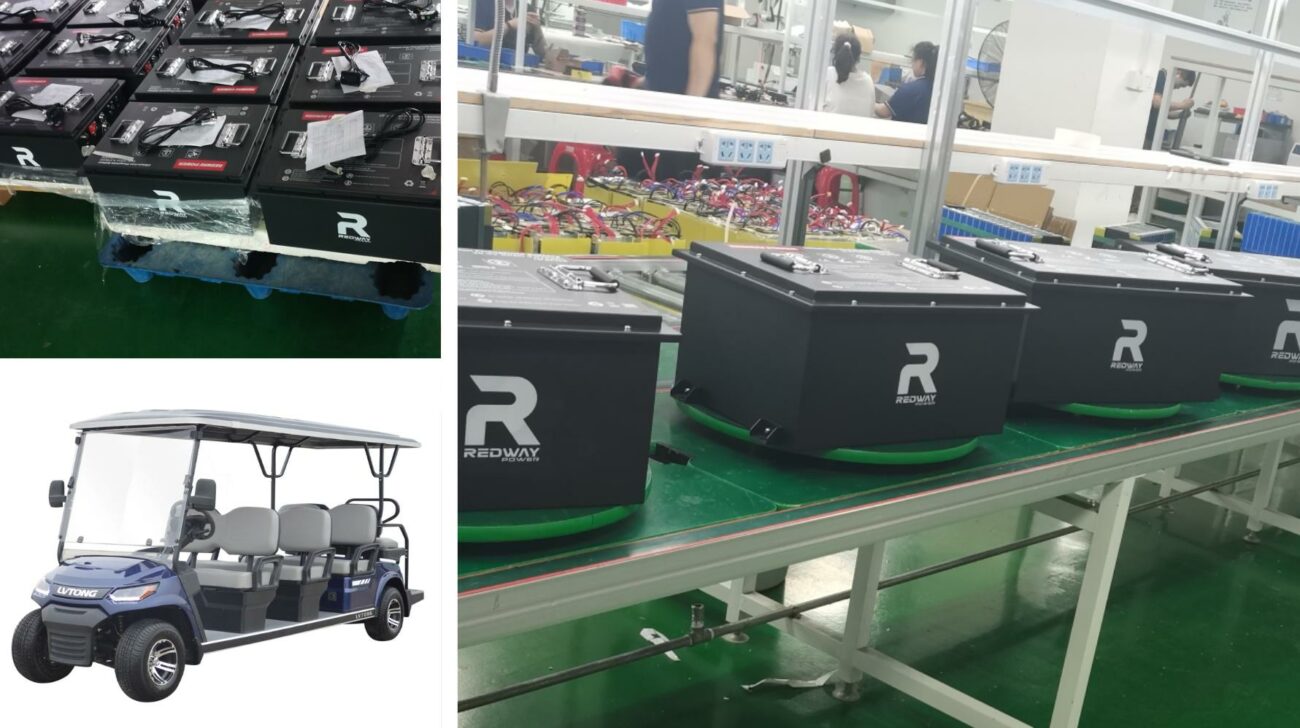Answer: Reliable forklift batteries are available through local dealers, industrial suppliers, and specialized battery retailers. Prioritize vendors offering warranties, maintenance services, and compatibility checks. Lithium-ion and lead-acid batteries are common options, with local suppliers often providing faster delivery, installation support, and recycling programs.
48V 400Ah Lithium Forklift Battery
How Do Lithium-Ion and Lead-Acid Forklift Batteries Compare?
Lithium-ion batteries offer longer lifespans (2–3x lead-acid), faster charging, and zero maintenance but cost 30–50% more upfront. Lead-acid batteries are cheaper initially but require regular watering, ventilation, and shorter cycle life. Lithium excels in multi-shift operations; lead-acid suits budget-focused, single-shift workflows.
Recent advancements in lithium technology have introduced smart Battery Management Systems (BMS) that optimize charge cycles and prevent over-discharge. For example, EnerSys’s NexSys® batteries feature predictive analytics to warn operators about potential issues weeks in advance. In contrast, lead-acid batteries remain popular in cold storage environments due to their stable performance at low temperatures, though they lose 30–40% capacity in sub-zero conditions.
| Feature | Lithium-Ion | Lead-Acid |
|---|---|---|
| Cycle Life | 3,000+ cycles | 1,500 cycles |
| Charge Time | 1–2 hours | 8–10 hours |
| Energy Efficiency | 95% | 80% |
Warehouses running three shifts often achieve ROI on lithium batteries within 18 months through reduced labor costs and downtime. However, operations with sporadic usage patterns may still benefit from lead-acid’s lower upfront investment.
What Factors Should I Consider When Choosing a Forklift Battery?
Evaluate voltage (24V–80V), capacity (Ah), forklift model compatibility, and duty cycle. Confirm battery dimensions fit your equipment and charging infrastructure. Opt for suppliers providing load testing, thermal management options, and 24/7 emergency support. Total cost of ownership (TCO) should factor in energy efficiency and lifespan.
Voltage requirements vary significantly across forklift classes. For instance:
| Forklift Class | Typical Voltage | Common Applications |
|---|---|---|
| Class I (Electric Rider) | 36V–48V | Warehouse loading |
| Class II (Electric Narrow Aisle) | 24V–36V | Retail stockrooms |
| Class III (Electric Hand Trucks) | 12V–24V | Small-item transport |
Capacity needs depend on daily energy consumption. A 600Ah battery running 6 hours daily consumes approximately 100Ah per hour. Always add 20% buffer to prevent deep discharges. For operations with opportunity charging stations, lithium-ion’s partial-state-of-charge capability can extend usable capacity by 15–20% compared to lead-acid.
Where Can I Buy Forklift Batteries Locally With Fast Delivery?
Local industrial parks often house certified dealers like Battery Systems Inc. or East Penn Manufacturing. Check suppliers offering same-day delivery within 50-mile radii. Warehouse distributors like Uline or Grainger stock common models. Verify in-stock availability via real-time inventory portals.
How Much Do Forklift Batteries Cost Near Me?
Lead-acid batteries cost $2,000–$6,000; lithium-ion ranges $8,000–$20,000. Prices vary by capacity (300–1,200 Ah) and brand (EnerSys, Crown). Local dealers may offer leasing at $150–$400/month. Request quotes including tax, core charges, and installation fees.
What Maintenance Practices Extend Forklift Battery Life?
Water lead-acid batteries weekly; avoid discharging below 20%. Clean terminals monthly to prevent corrosion. Use equalization charging every 10 cycles. For lithium-ion, store at 40–80% charge in 59–77°F environments. Both types require annual professional inspections.
How Do Environmental Regulations Impact Battery Disposal?
Federal RCRA rules mandate hazardous waste protocols for lead-acid disposal. Many states require recycling through certified centers (e.g., Call2Recycle). Suppliers often collect spent batteries under EPA-compliant programs. Improper disposal risks $10,000–$50,000 fines per violation.
What Financing Options Exist for Forklift Battery Purchases?
Lease-to-own agreements (12–60 months), equipment loans (4–8% APR), and utility rebates for energy-efficient models. Some vendors offer deferred payment plans for businesses with 650+ credit scores. Explore state green-energy grants covering 15–30% of lithium-ion costs.
Are Refurbished Forklift Batteries a Viable Option?
Certified refurbished batteries cost 40–60% less than new units, with 6–12-month warranties. Ensure rebuilders replace damaged cells and recalibrate management systems. Ideal for backup fleets or light-use scenarios. Avoid uncertified sellers lacking UL/EU compliance documentation.
Expert Views
“The shift to lithium-ion is accelerating—we’ve seen 300% growth in adopters since 2020. Modern BMS (Battery Management Systems) now provide real-time diagnostics via IoT, slashing downtime. However, proper load matching remains critical; oversized batteries waste capital, undersized ones risk thermal runaway.” — Redway Power Solutions Senior Engineer
Conclusion
Selecting forklift batteries demands balancing cost, technology, and operational needs. Local suppliers enhance support efficiency, while lithium-ion’s TCO advantages reshape long-term budgets. Always verify certifications (UL 2580, ISO 9001) and regional compliance pre-purchase.
FAQ
- How Long Do Forklift Batteries Typically Last?
- Lead-acid: 3–5 years (1,500 cycles). Lithium-ion: 8–10 years (3,000+ cycles). Usage intensity and maintenance heavily influence lifespan.
- Can I Replace Lead-Acid With Lithium-Ion Batteries?
- Yes, but require charger compatibility checks and possible forklift ECU updates. Consult OEM guidelines; retrofit costs average $500–$2,000.
- What Are the Signs of a Failing Forklift Battery?
- Reduced runtime (>20% capacity loss), swollen cases, excessive heat during charging, and voltage drops under load.
- Where Can I Recycle Old Forklift Batteries?
- Authorized centers like Interstate Batteries or Battery Council International members. Many dealers offer trade-in credits up to $300 per core.






